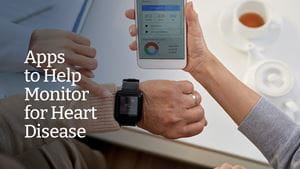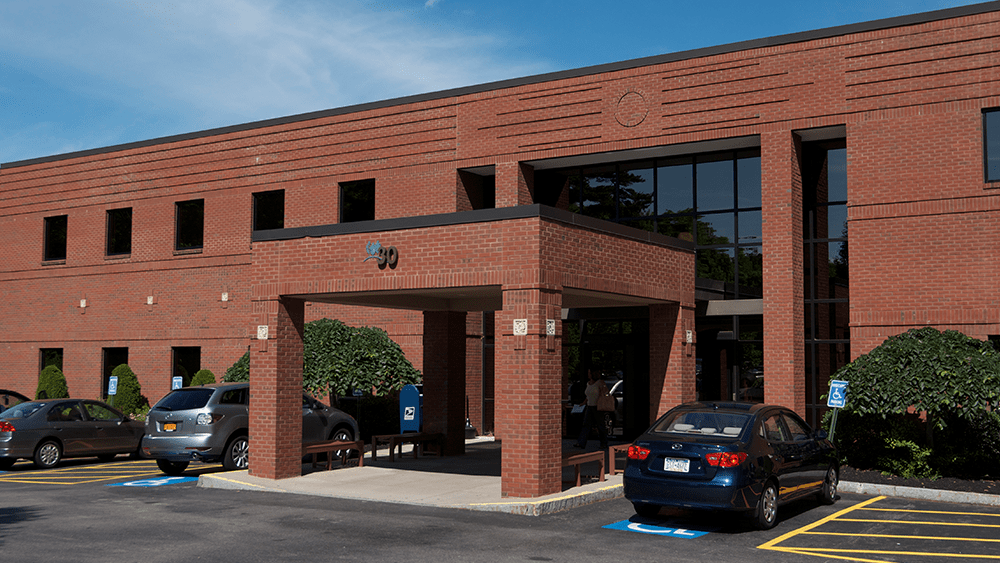
Keeping track of your health and knowing when medical attention is necessary can be extremely helpful, especially for those with or at risk of heart disease. During a time of smartphones, smartwatches, and a world of technology at our fingertips, keeping track of specific health indicators is easier than ever.
If you or a loved one has heart disease or is at risk, there are plenty of apps that can help you easily monitor your heart health and know when you may need to see a doctor.
David Corteville, MD, a cardiologist with Rochester Regional Health, recommends six useful apps for monitoring heart health at home and on the go.
Heart Pal helps users log, chart, and analyze blood pressure—all heart factors that can indicate the status of heart health. It also has a pill-tracking feature that allows users to keep track of prescriptions and set schedules for taking medications. In addition to the app, the company offers a handheld ECG monitor for users to purchase and track heart health at home.
In addition to heart rate, Cardiio can monitor and track the overall level of cardiovascular health and fitness levels. Designed by specialists from Harvard and MIT, the app uses a smartphone camera to take measurements that help monitor heart health. The app helps users understand how their heart rate relates to their general health and provides recommended workouts to help users stay in shape.
Point of Care integrates with the Health app on the phone, working to track heart rate, weight, fitness levels, and other determinants of health. The app allows users to track and journal to keep specific health numbers as well as in-depth feelings and descriptions. All stored in one place, information tracked by users can be shared with their doctor if they chose to do so.
Withings Health Companion allows users to track and monitor blood pressure, weight, fitness level, and sleep patterns. The company that created the app also offers a blood pressure cuff for users to purchase for the most accurate at-home measurements.
Designed by researchers at the American College of Cardiology and the American Heart Association, ASCD Risk Estimator can help users assess their risk for atherosclerotic cardiovascular disease. The app tracks weight, blood pressure, age, and lifestyle habits, that when assessed together can help determine risk levels.
At no cost, this app is useful for those who are known to be at risk for heart disease or those who want to stay ahead of their heart health.
For those interested in a paid option, KardiaMobile is an FDA-cleared personal EKG. It can detect Atrial Fibrillation or normal heart rhythm and keeps track of data that can be shared with a physician. However, to use this app, a device must be purchased with it.
For more advanced monitoring, the app offers a membership with additional features to monitor weight, blood pressure, heart health summaries, and more.
Dr. Sarah Taylor, a cardiac electrophysiologist with the Sands-Constellation Heart Institute, provides best practices for using heart apps to monitor heart health.
The best measurement to assess with a smart phone or wearable device is your pulse. Some more advanced wearable devices can alert you if your pulse is irregular and may be able to detect atrial fibrillation—a condition that, if undetected, can cause a stroke.
The only way to track blood pressure is through a blood pressure cuff. Many apps can keep track of your blood pressure patterns, but you should log them manually.
After tracking your blood pressure, heart rate, and weight, definitely share the information with your physician. With a timeline of heart health measurements, they can have a better understanding of your health.
Keeping track of your heart numbers using an app can be informative, interesting, and often beneficial. However, it does not replace the expertise of a medical professional. Be sure to talk to your doctor to see how apps may or may not benefit you and always attend your routine check-ups.
“At regular check-ups, blood pressure, heart rate, weight, and other health indicators will be measured,” said Dr. Corteville. “For patients who should monitor their heart health at home, your doctor can provide information on when your numbers are at an unhealthy level and when to seek medical attention.”
In general, call your doctor now or seek immediate medical attention if:
If you’re experiencing blood pressure higher than 180/120 mm Hg and you’re experiencing symptoms such as chest pain, shortness of breath, numbness, weakness, back pain, blurry vision, or difficulty speaking, call 9-1-1 immediately.
